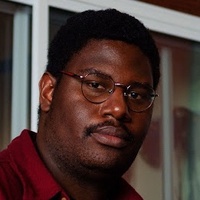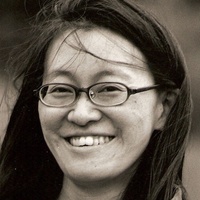On being proud of what you do
Prelude
After coming of age amid vibrant DIY scenes in her hometown Toronto, and forming lasting bonds in the music program at Montreal’s Concordia University, Charlotte Cornfield knew that her new album Highs In The Minuses needed a cast that was representative of her journey—those friends and colleagues who’ve helped her become the writer and player she is. Though the songs of Highs in the Minuses—her debut release on Polyvinyl and Double Double Whammy—are highly personal, Cornfield wanted their sonic quality to convey the communal energy of the live performance. “I knew everyone was coming in prepared, but I was excited to see what was going to happen spontaneously, and those ideas that happened really quickly,” Cornfield says. “It was so much about trusting who I was with and trying to capture the immediacy of the emotions in the songs.”
Conversation
On being proud of what you do
Musician Charlotte Cornfield discusses what honesty looks like in music-making and performance, the ways community influences her craft, and how she writes her songs.
How do you write a song?
I guess it usually starts with a sentiment or idea. I try to keep a notebook full of lines, and things that I’m thinking about, and then work off of that. So usually, it comes from me sitting down and intentionally being like, “This is a moment where I’m going to attempt to write a song.” I often start from a lyrical place then I’ll just start playing along, and maybe recording some improvised ideas on a voice memo, after which I start to type or write from there.
Have you ever started without any intention in your head and just let the ideas come to freeform?
I’ve been actually having more fun with that lately. I used to not do that at all, but introducing the play aspect is helpful and it lets me land in a certain headspace. So yeah, playing something on the guitar, or piano, or even the bass, like my song “Partner in Crime”, which is on my last record, came from just me riffing on the bass, alone in the basement one day. It felt hilarious like I was a teenager, but then it turned into a song.
I feel like your songwriting to me is genuine and honest. Would you agree with that?
Yeah, I think I would. I discovered early on in attempting to write songs that what worked best for me is writing about my own life, and experience, and staying true to myself. Even from as early as my teens, that was what I felt was sort of resonating with people, and that pushed me to take up that torch.
Is there anything you leave out or don’t deliberately talk about in your songs?
There definitely are. I try to make a point of not being too confessional in that way and I try to only say things if it feels like they’re going to serve the song or the sentiment that I’m trying to convey. So I have written songs where I’m like, “You know what, maybe it’s fine that I wrote this but it doesn’t need to be put out.” I never want to alienate or hurt anyone, so if I feel it’s something that might make someone else feel weird, then I try to steer clear of that kind of thing. I sometimes check-in if I want to run things by someone, but mostly I try to get into other people’s shoes a little bit and be aware of how I’m writing and how it might be perceived while at the same time staying true to myself.
What do you think honesty looks like in music, in general?
I think it means different things to different people, but to me, it means presenting something that feels genuine, and that isn’t imitating somebody. It’s also not even just in the music I make, but in the interactions that I have with people and in the way that I exist in the world. I try to stay true to myself, act with kindness, and present my truth to others, and in hopes that they would feel comfortable doing the same.
What was your experience like making your latest record?
It was really interesting because I feel it was split up into two parts; the very solitary process of writing it, and then going to Montreal and getting together with people to record. The writing process was peaceful and fun for me actually, because it was early pandemic days and there was nothing else going on. I was feeling anxious about things in general but was able to just be at home and enter this contemplative state. I would skateboard around the city or walk around in the dead streets and just think. I found that clear headspace helped me reflect on past experiences in my life, and look at them with a little bit more resolve and empathy for where I was at times when I was younger. That’s where I was writing from.
When recording, do you feel that people playing on the record change the songs?
Definitely, yeah. I always feel like it’s thrilling to see how other people interpret the songs and play them. I like getting to that point where I feel ready to record and have some clear ideas of what I want to do, and then putting it in other people’s hands and being like, “Take this and run with it.” I might have some thoughts here or there about things, but it’s exciting to work with musicians whose playing I love so much to the point where I’m like, “Whatever you do, it’s going to be so cool.”
At what point in the process of making an album do you come up with a title for it?
It’s usually pretty late in the game. For maybe all of my records, I have come up with a title after it’s made. I like to let it take shape, but I don’t necessarily swear by that method. It’s nice to have a real sense of what the record is before I give it a name.
How do you think community plays a part in your music-making?
For me, it’s huge. Being part of a music community has always been important to me right from the beginning. From starting to play shows in high school to moving to Montreal and going to other people’s shows, I remember thinking “This is a place where I can try things out that feel safe.” Experiencing people giving one another positive and constructive feedback has been a huge part of how I’ve learned.
How have you felt community has shifted since the pandemic hit?
I miss those little interactions that would just happen from seeing people at shows or getting together at various things and just the human contact piece, which is so huge for community. Because everything moved online, I do miss the in-person. I didn’t feel super isolated by it, but I miss it.
How has it been feeling to play shows again?
It’s been feeling really good. I’ve been loving being able to play this record live and especially love bringing my band with me. I feel in the music community, it’s feeling incredible to be at shows again. Seeing all these people whose records I’ve been listening to felt like such a great experience, but there is still this underlying dread of things being cancelled, because of COVID. At SXSW, my whole band got sick. Fortunately, we didn’t have to cancel any shows, but one of my bandmates couldn’t fly back because he had tested positive in Austin. Now we’re all okay and hopefully have immunity for the next little while. The tour that I’m leaving on tonight has strict COVID policies because if anything were to happen, the financial implications would be huge. Although everything is in flux right now, it seems the direction is forward.
Aside from music, in what other ways do you feel creative in your life?
I like absorbing things and observing life around me. I love reading, listening to stuff, watching people and processing it all. I like writing, not just for music, but writing freeform, which feels like a fun and cathartic outlet. It’s exciting to see what comes up because I don’t do it in any sort of organized way or with any intent of it turning into something more.
When you’re writing songs, are you thinking about how they will be received as you are creating?
Not necessarily with specific people in mind, but I am guided by a feeling that a song is meaningful and anticipate sharing it. Being able to relate to people and feeding off an audience’s reaction to a thing is such a huge joyful part of playing music. During the writing process, I mainly like to envision myself in the audience and think about how I will receive it.
What makes you feel proud of yourself?
For me, sticking to this thing that I’ve loved doing since I was a kid, and continuing to learn, work and grow from it is all I care about. On top of that, making music and writing songs that feel like they’re on a continuum feels gratifying. I’m proud of continuing to feed the beast.
Charlotte Cornfield Recommends:
The Trickster Trilogy of books by Eden Robinson: Son of a Trickster, Trickster Drift, and Return of the Trickster
The album Another Side, by Leo Nocentelli.
Boggle (the game.)
Martha Wainwright’s new memoir, Stories I Might Regret Telling You
Creation Never Sleeps, Creation Never Dies: The Willie Dunn Anthology
- Name
- Charlotte Cornfield
- Vocation
- musician
Some Things
Pagination



